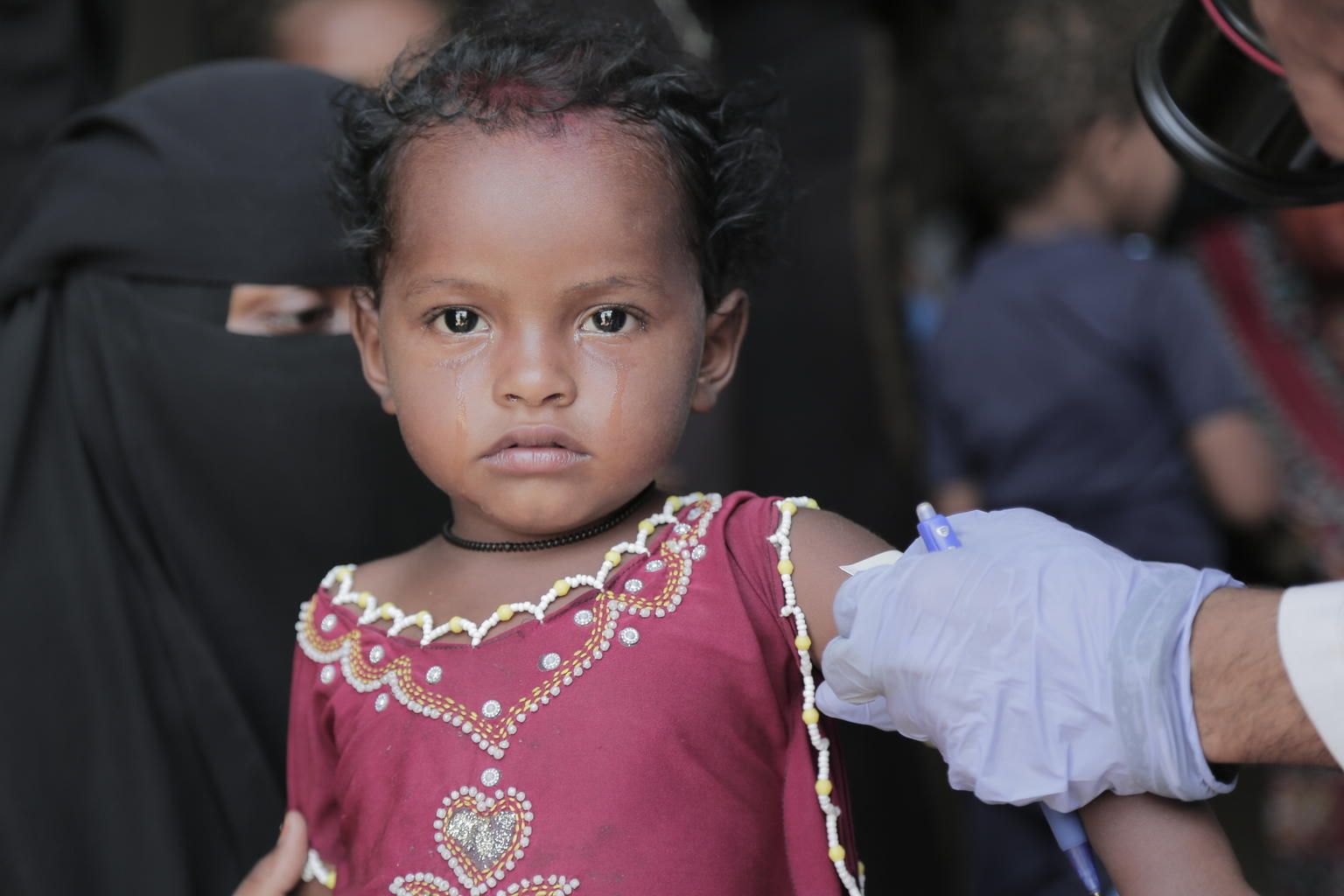Overstretched health services, missed vaccinations, and mistrust are all secondary impacts of COVID-19 that could lead to a dramatic increase in child mortality according to a new Johns Hopkins University study commissioned by the World Health Organization and UNICEF released on Sunday.
“The COVID-19 pandemic is putting health systems under unprecedented stress in the region. Primary health care services have either decreased or been interrupted in several countries,” said UNICEF Regional Director in the Middle East and North Africa Ted Chaiban and WHO Regional Director for the Eastern Mediterranean Region Dr. Ahmed Al-Mandhari in a joint June 14 statement.
The study looked at three different scenarios to understand how changes to health service provision and the economic impact of COVID-19 affect child and maternal health in ten MENA countries — Algeria, Djibouti, Egypt, Iraq, Jordan, Morocco, Syria, Sudan, Tunisia, and Yemen.
The MENA region, like the rest of the world, has seen few actual cases of the coronavirus in children, but the secondary effects of the pandemic are nevertheless “affecting children’s health firsthand,” the study found.
The Threat of Secondary Effects
“An additional 51,000 children under the age of five might die in the region by the end of 2020 if the current disruption of essential health and nutrition services is protracted and malnutrition among children increases,” the joint statement revealed.
“If this happens, it would be an increase of nearly 40 per cent in comparison to pre-COVID figures, reversing progress made in child survival in the region by nearly two decades.”
The pandemic has directed frontline workers away from providing essential services to mothers and their children such as immunization, treatment of neonatal infections and childhood diseases, pregnancy and childbirth care, and malnutrition programs. The WHO and UNICEF say coronavirus movement restrictions, economic downturn, and wariness of health workers and facilities driven by fear of contracting the disease are also creating new barriers to pediatric healthcare.
“But we can avoid this scenario, allowing tens of thousands of children to celebrate their fifth birthday surrounded by their families and friends,” the WHO and UNICEF say.
The UN agencies are calling for MENA countries to resume vaccination campaigns and nutrition services, facilitate access to primary health care for all children, provide sufficient infection prevention and control equipment to health workers, and begin communication initiatives aimed at restoring trust in the public health system.
Too Late for Children in Yemen
The worst case scenario is already playing out in Yemen, home to the world’s worst humanitarian crisis and where a funding shortfall has already forced the UNFPA to cut lifesaving reproductive health services to 140 out of 180 health facilities in the war-torn country.
“We are now in a life-or-death situation. Women and girls will die if we do not provide critical reproductive health services. We can only do so if funding becomes available,” said the UNFPA’s acting representative in Yemen, Nestor Owomuhangi, on May 29.
Food programs have also been cut as a result of insufficient funding in the country where an estimated two million children under five are suffering from acute malnutrition.
The World Food Programme, which provides food and nutrition assistance to around 12 million people across Yemen, states it “urgently needs US$416 million to ensure uninterrupted food assistance for the next six months.”
On June 2, an international pledging conference co-hosted by the UN and Saudi Arabia fell short of its $2.41 billion fundraising target, with donors pledging just $1.35 billion — a shortfall largely attributed to the economic impact of the coronavirus pandemic.
It remains to be seen if the UN will secure alternative funding sources to support essential programs in Yemen. If not, it seems the country’s most vulnerable, namely women and children, are destined to become the forgotten victims of the global COVID-19 pandemic.
Read also: Saudi Arabia’s Anti-Mine Program “Masam” Works to Make Yemen Safer


